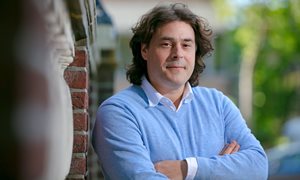
A project led by Oncode investigators from several institutes received a 3.4 million euros fund from KWF Kankerbestrijding (Dutch Cancer Society). Radboudumc is a partner in this project, lead by LUMC. The project will focus on mobilizing innate leukocytes to attack tumors.
In 2021, Oncode Institute organized brainstorm sessions to come up with ideas for cross-disciplinary synergies between Oncode researchers to tackle difficult challenges in cancer research. A group of Oncode Investigators from different institutes* came up with an exciting new idea requiring their collaboration to become successful. This launched a new Oncode Accelerator Project.
Game-changer
Cancer immunotherapy is a game-changing treatment that stimulates the T-cells of our immune system to kill cancer cells. Its success revealed the major obstacle that faces cancer immunotherapy today: the resistance of tumors to this T-cell mediated therapy. The group of Oncode Investigators are joining forces to face this problem. In this Oncode Accelerator Project, they call in the help of other immune cells, so called “innate leukocytes”. These cells are present in large quantities in tumors, can be rapidly recruited from the blood stream and when steered the right way can effectively fight cancer, independent of T-cells.
The researchers want to understand which and when different types of innate leukocytes can help fight tumors. They also want to analyze how these different cells communicate which each other and with other cells, in order to discover how these cells can be manipulated to fight cancer. Finally, they want to predict the response of patients to therapies, with the ultimate aim to test them in the clinic.
Platform
Project leader Sjoerd van der Burg (LUMC) says: “This is the first and truly unique approach fully focused on the capitalization of the tumor-controlling role of innate leukocytes for treating tumors that are resistant to T-cell therapy. Success would revolutionize current cancer care. Within Oncode we have assembled an excellent multidisciplinary team with a high level of integrated expert knowledge. Since there are many different institutes involved, we also have access to unique toolboxes, mouse models, patient cohorts, regulatory molecule identification pipelines, facilities, drug repurposing libraries, and an antibody production platform - which will now be combined to serve this one goal in the most optimal way possible.”
The research at Radboudumc will be supervised by professor of Experimental Immunology Carl Figdor: “In this exciting project, we will in particular study the tumor microenvironment in biopsies from patients and in culture model systems, where we study the behavior of immune cells in the tumor. During the past 3 years Mark Gorris, Shabaz Sultan and Johannes Textor have developed a novel imaging platform to study the infiltration of immune cells in tissue sections of tumors in great detail. In this synergy grant, Oncode PI’s together aim to get detailed insight in the role of myeloid cells in the tumor.”
*The Oncode Investigators working on this project are: Sjoerd van der Burg, Sjaak Neefjes (LUMC), Karin de Visser, Leila Akkari, Tineke Lenstra, Jacco van Rheenen (NKI), Linde Meyaard, Jeroen de Ridder (UMCU), Miao-Ping Chien (Erasmus MC), Sarah Derks (Amsterdam UMC, location AMC) and Carl Figdor (Radboudumc)
-
Want to know more about these subjects? Click on the buttons below for more news.
Related news items

Willem Mulder appointed professor of Precision Medicine
4 October 2022Willem Mulder has been appointed professor of Precision Medicine at Radboud university medical center / Radboud University. He develops new drugs for immunotherapy against cancer, inflammation, rejection reactions and infectious diseases.
read more
Immune cell becomes tumor cell by a molecular switch to higher lipid uptake Protein CD37 plays an important role in the development and prognosis of B-cell lymphoma
19 September 2022When B cells of the immune system no longer have the protein CD37 on their surface, they can change into tumor cells that form blood cancer. CD37 inhibits fat uptake in B cells. If this protein is missing, a tumor cell absorbs much more fat and therefore grows faster.
read more




